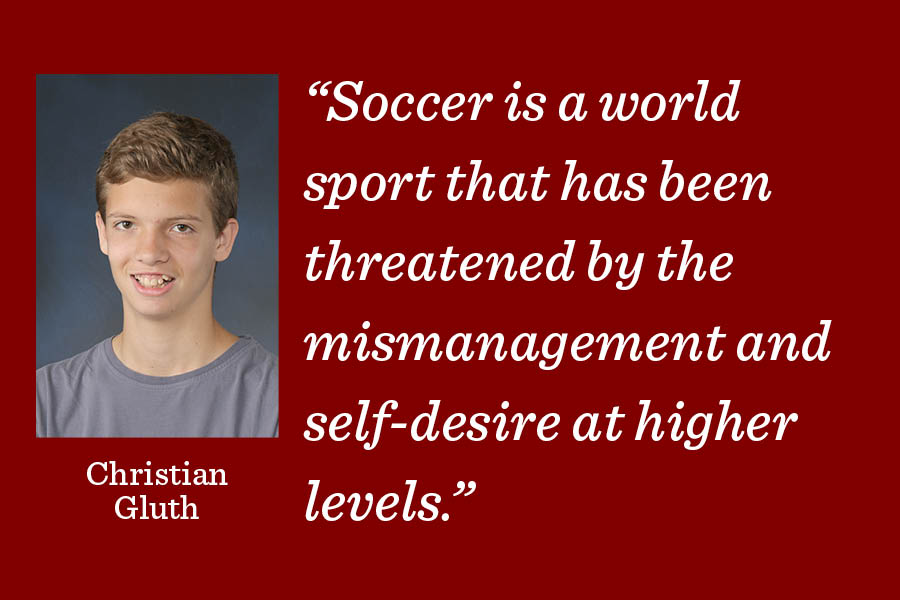Future of soccer threatened by higher-level mismanagement
Midway staff
Without fair competition and opportunity, professional soccer is not entertaining, writes reporter Christian Gluth.
May 11, 2021
In the 2015-16 Premier League season, Leicester City had 5000-1 odds of winning the league title. Then, Leicester went on one of the most remarkable runs in sports history. They lost only 3 league games all season and went undefeated in their last 12 matches. Since that year, they have been a regular contender for the top of the table.
With the proposed European Super League, this legendary and meteoric rise would never have happened. Instead, soccer would have fallen victim to the lust of billionaire owners looking to further increase their wealth, and doing so by equaling the payout of absurd player salaries by distributing income of the ESL. Without fair competition and opportunity, professional soccer is not entertaining.
On April 18, the owners from 12 top European clubs agreed to break away from the traditional UEFA Champions League playoff format and create their own midweek league to determine the best team in Europe. This league would have guaranteed 15 teams to compete every single year, regardless of performance, with five other clubs rotating in and out. In response, FIFA, the governing body of UEFA, threatened to shut out all participating ESL clubs from both Champions League and local competition, as well as participating players from future FIFA World Cups.
The biggest problem with the ESL is that it has almost zero support from the fans. Since its inception, protests have erupted from soccer fans all across Europe, outraged at the selfishness of club owners. This outrage became a large part of why clubs began to doubt the stability of the league and drop out. Even after its decline, fans of Super League clubs continue to protest ownership. On May 2, Manchester United were unable to compete against Liverpool as scheduled due to fans breaking onto the pitch right before the intended start of the match, protesting ownership of the club. The potential breakaway signified the owners turning their back to the fans, a broken trust that will be difficult to repair. Without the support of fans, the most vital instrument in the melody of soccer, the success of the league was instantly and rightfully doomed.
Florentino Pérez, president of Spanish powerhouse Real Madrid and chairman of the ESL, has a completely opposite perspective from the fans. He believes the large support of big clubs would make soccer fans rejoice in the massive intercontinental matchups every year. However, Pérez fails to see that if the top clubs were to play each other every single year, the matchups would lose excitement over time. In fact, what makes those matchups so exciting in the first place is their rarity and the effort it takes for each club to draw each other in the Champions League knockout format. With the aspirations of Pérez and the rest of the ESL members, the top level of European soccer would have been sent into a void, cutting off the individual league circuits in search of billions of dollars.
Even with the short lifespan of the ESL, the larger issue of soccer being stolen by large corporations and wealthy club owners is still at the table. FIFA is no hero in this story; under former president Sepp Blatter in 2015 14 FIFA officials were indicted with racketeering and corruption. Soccer is a world sport that has been threatened by the mismanagement and self-desire at higher levels, and until it is keeps a level playing field, its future is still gray.


















